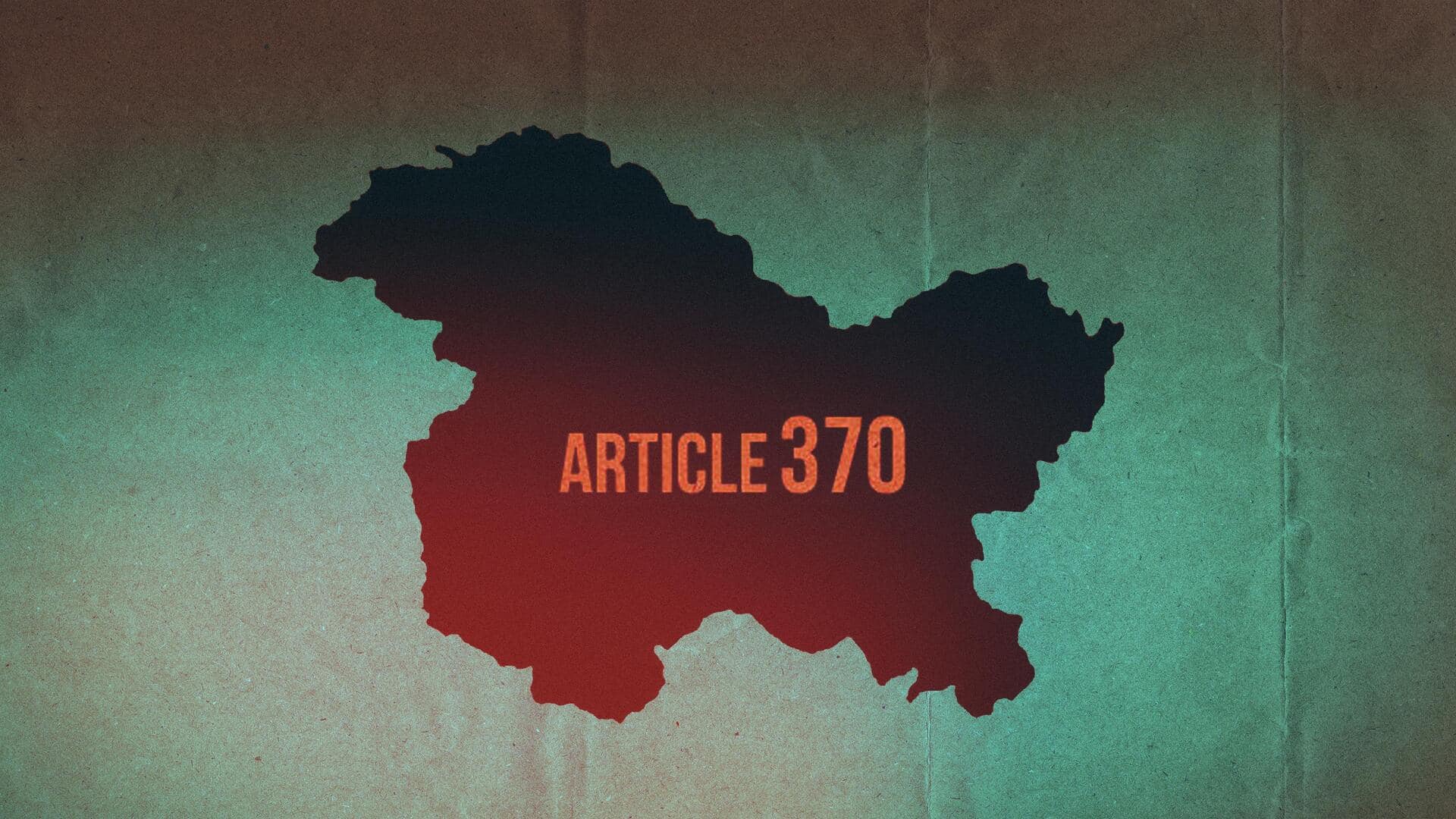
Article 370 abrogation: Military veterans, ex-judge, former bureaucrats among petitioners
What's the story
Nearly four years after the Centre abrogated Article 370 of the Constitution, revoking the special status of Jammu and Kashmir (J&K), the Supreme Court will hear a batch of pleas challenging the decision from August 2. As many as 22 petitioners challenged the move—which led to the erstwhile state's bifurcation—calling it unconstitutional and arbitrary. Let's take a look at who these petitioners are.
Lawyers
The petitioners include advocates and retired judges from J&K
The petitioners in the case included Rifat Ara Butt and Soyaib Qureshi, lawyers practicing in the J&K High Court and the SC; and J&K-based lawyers Shakir Shabir and Ilyas Laway. Others include Muzzafar Iqbal Khan, a retired district court judge from J&K; the J&K High Court Bar Association; and Manohar Lal Sharma, a lawyer known for filing frivolous petitions.
Military
Indian armed forces veterans also challenged move
Air Vice Marshal (retired) Kapil Kak, who served the Indian Air Force (IAF) for 35 years as a member of the flying branch, and Major General (retired) Ashok Kumar Mehta, who was commissioned in 1957 in the 5th Gorkha Regiment, are also among the petitioners.
IAS
IAS officers also on the list
Furthermore, the petitioners included the late Hindal Haidar Tyabji, a former IAS officer of the J&K cadre, and Amitabha Pande, a former IAS officer of the Punjab cadre. Gopal Krishna Pillai, a former IAS officer from the Kerala cadre who retired as Union Home Secretary in 2011; and Shah Faesal; the Deputy Secretary in the Union Ministry of Culture, were among the original petitioners.
Others
Who are the other petitioners
Other petitioners include Farooq Ahmad Dar, a businessman from J&K's Ganderbal; Mohammed Hussain Padder, the president of the J&K People's Movement (JKPM); and Javid Ahmed Bhat, a J&K-based research scholar. Shehla Rashid Shora, a human rights activist from Kashmir; political activist Rohit Sharma; artist Inder Salim; Mohammed Yousuf Tarigami, J&K CPI(M) leader; and the People's Union for Civil Liberties (PUCL) are the other petitioners.
Withdrawal
Shah Faesal, Shehla Rashid withdrew their petition
Of the 22, Faesal and Shehla withdrew their petitions earlier, and the SC on Tuesday allowed their names to be deleted from the list of petitioners challenging the move. Last week, Faesal tweeted that Article 370 is a thing of the past for many Kashmiris like him. He said, "Jhelum and Ganga have merged in the Indian Ocean for good."
Faesal
Faesal's roller-coaster ride
Faesal resigned as an IAS officer in January 2019, months before Article 370 abrogation, and floated the JKPM. He was detained for a year under the Public Safety Act immediately after the abrogation. In 2020, he was released but placed under house arrest. After walking free, he removed all posts related to JKPM from social media accounts, and the government reinstated him last year.
Hearing
SC to decide whether abrogation and bifurcation were unconstitutional
A five-judge Constitutional bench is expected to decide whether the Rajya Sabha's statutory resolution and the Presidential Order violated the fundamental rights of the people of J&K. Article 370 was allegedly abrogated without the people of J&K's consent during the President's Rule. The bench will also decide if the bifurcation of the erstwhile J&K state into two union territories was unconstitutional.
Contention
SC refused to refer matter to larger bench
The case was last heard in 2020 by a different five-judge SC bench, which refused to refer the matter to a seven-judge bench. The question arose over conflicting interpretations of Article 370 in two cases. The bench upheld a Presidential Order in a 1959 case, but in a 1970 case, it stated that the President and Parliament don't have much authority under Article 370.